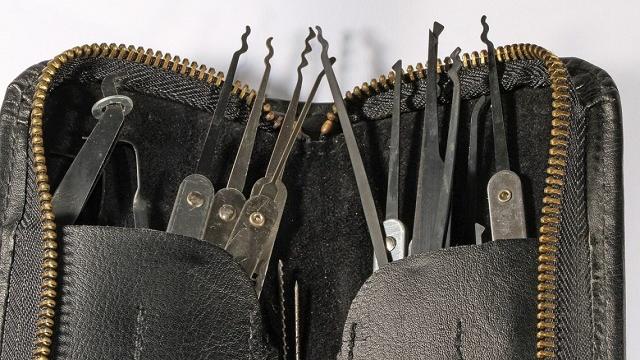A Guide to Understanding Lock Picking Kits
2024-12-14 16:04

Lock picking is an ancient skill that has evolved over centuries, becoming both a practical tool and a subject of fascination. While it might seem like something out of a spy movie, lock picking kits are actually used by locksmiths, security professionals, and enthusiasts alike for various legitimate purposes. This article delves into the world of lock picking kits, exploring what they are, how they work, their legal implications, and why they can be valuable tools.
What Is a Lock Picking Kit?
A lock picking kit is a set of specialized tools designed to manipulate the internal components of a lock without the use of a key. These kits typically include a variety of picks (slender metal rods with curved or angled ends), tension wrenches (used to apply torque to the cylinder), and sometimes other tools like rakes or decoders. The most common types of locks that can be picked are pin tumbler locks, wafer locks, and disc detainer locks.
How Does Lock Picking Work?
At its core, lock picking involves manipulating the locking mechanism's internal parts so that the lock can be turned as if the correct key were inserted. For a pin tumbler lock, this means lifting each pin to the correct height so that the plug (the part you insert the key into) can rotate freely. This process requires patience and practice, as well as a good understanding of how different types of locks operate.
The basic technique for picking a pin tumbler lock involves two main steps:
1.Applying Tension: Using a tension wrench, slight pressure is applied to the plug in the direction it would turn if unlocked.
2.Lifting Pins: With the tension applied, a pick is used to lift each pin until it sets at the shear line, the point where the plug and housing separate. Once all pins are correctly positioned, the lock opens.
Legal Implications
It's important to note that the legality of owning and using a lock picking kit varies widely depending on local laws. In many places, it is legal to possess lock picking tools, provided there is no intent to commit a crime. However, carrying these tools in public may raise suspicion or lead to legal issues if not handled carefully. Always check and comply with local regulations before acquiring or using a lock picking kit.
Ethical Use and Legitimate Applications
Lock picking kits serve several legitimate functions beyond just opening locks without keys. Professional locksmiths use them daily to assist customers who have been locked out of their homes, cars, or businesses. Security consultants also employ these tools to test the effectiveness of locks and recommend improvements. Additionally, learning lock picking can be a hobby that teaches problem-solving skills and mechanical understanding.
For those interested in improving home security, understanding how locks can be compromised is invaluable. By testing one's own locks, homeowners can identify weak points and upgrade to more secure models. Moreover, participating in ethical hacking communities or attending lock-sport events allows enthusiasts to hone their skills in a controlled environment while respecting legal boundaries.
Conclusion
Lock picking kits open up a fascinating realm of possibilities for those willing to explore the mechanics behind our everyday security measures. From professional applications to educational benefits, these tools offer insight into the intricate world of locks and keys. As with any powerful knowledge, it's crucial to approach lock picking responsibly, ensuring that it serves constructive rather than harmful purposes. Whether you're a curious beginner or an experienced practitioner, always remember to respect the law and use your skills ethically.
 Promotion: 5% Discount Code: 5vip
Promotion: 5% Discount Code: 5vip